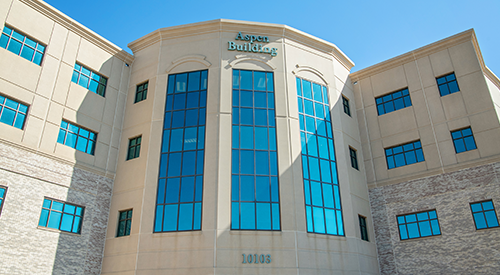What are Esophageal Varices?
Esophageal varices are enlarged veins in the esophagus or the tube that connects the throat and stomach. This condition most commonly occurs in individuals with serious liver disease. These varices develop when normal blood flow to the liver is inhibited by scar tissue or a clot in the liver. In order to flow around these blockages, blood flows into small blood vessels that are not meant to carry such large amounts of blood. These vessels can leak or even rupture, causing serious bleeding.
Signs or symptoms of bleeding esophageal varices include:
- Black, tarry or bloody stools.
- Vomiting a lot of blood.
- Lightheadedness.
- Loss of consciousness.
How are Esophageal Varices Diagnosed?
If you have been diagnosed with cirrhosis, your provider should screen you for esophageal varices. Normally, tests used to diagnose this condition include an endoscopic exam, imaging tests or capsule endoscopy.
Esophageal Varices Treatment Options
The number one aim in treating esophageal varices is to prevent or stop bleeding. In cases where your veins are not bleeding but you would like to prevent bleeding, medications can be given to reduce pressure in the portal vein. Elastic bands may also be used to cut off veins that are at high risk of bleeding in a procedure called endoscopic band ligation.
If your veins are bleeding, prompt treatment is necessary, as this can be life-threatening. Treatments used to stop bleeding include using elastic bands to tie off bleeding veins, medications to slow the flow into the portal vein, diverting blood flow away from the portal vein through a procedure called transjugular intrahepatic portosystemic shunt (TIPS), placing pressure on the varices to stop bleeding through a procedure called balloon tamponade, restoring blood volume through transfusion, taking antibiotics to prevent infection or replacing the diseased liver with a healthy one through a liver transplant.
People who experience bleeding esophageal varices are at high risk for recurrent bleeding. Beta-blockers and endoscopic band ligation are the recommended treatments to help prevent re-bleeding.
Your South Denver GI Team
At South Denver GI, our team of physicians and advanced practice providers have the expertise to provide you with outstanding care. If you would like to learn more about Varices (or esophageal varices, gastric varices) or need to schedule an appointment at our office, contact us today!
View All Our Providers
Contact Us Today
If you would like to learn more about esophageal varices or to schedule an appointment with one of our providers, contact South Denver GI today. We will be happy to answer any of your questions!
Contact UsRequest Appointment
Click on the Schedule Appointment button to schedule an appointment with your South Denver GI provider online. If you do not wish to use our convenient online scheduling tool, please fill out the form below and our team will contact you shortly.







